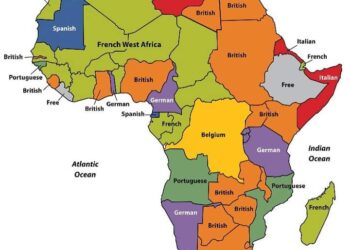The Academic Staff Union of Universities (ASUU) is worried that the federal government is planning to force lecturers into the Integrated Payroll and Personnel Information System (IPPIS). ASUU’s fears are that the scheme will erode their hard-earned university autonomy, UJI ABDULLAHI ILIYASU reports.
Background
The IPPIS is an Information and Communications Technology (ICT) project initiated by the federal government to improve the effectiveness and efficiency of payroll administration for its Ministries, Departments and Agencies (MDAs). But the policy does not go down well with university lecturers who claim that the federal government is planning to wipe away the university autonomy by forcing its members on the controversial scheme.
While speaking to journalists in Ibadan recently, the chairman, Ibadan zone of ASUU, Professor Ade Adejumo, vowed that the union was ready to resist the plans by the federal government to force ASUU members on the IPPIS scheme.
ASUU argued that rather than presenting the true picture of things on the IPPIS, the federal government has resolved to “selling lies” to Nigerians on the matter.
“It is common knowledge that in the past week the media have been agog with news of the opposition of ASUU to Integrated Payroll and Personnel Information Systems (IPPIS), a new and strange regime of finance about to be forced on public universities in Nigeria.
“At first, our union and government were on the same page in respect of the infallible reasons that our union painstakingly explained to government representatives during our interactions.
“These, unfortunately appears to have fallen on deaf ears as government has not only rolled out its propaganda machines against our union but also planning to ambush the union and force our members into this ill-informed platform.
“These ominous signs have now made it expedient for ASUU, as a responsible union of intellectuals, to puncture the lies sold to the public by government, particularly the office of the Accountant-General of the Federation, so that members of the public can be better informed about our position.
“For emphasis therefore, we now present detailed perspectives of our union’s rejection of the Integrated Payroll and Personnel Information System (IPPIS) to discerning members of the public (because) the IPPIS clearly violates the law,” he said.
According to ASUU, the universities miscellaneous provisions (amendment) Act 2003, provides in section 2AA unequivocally that the power of the council shall be exercised, as in the laws and statutes of each university and to that extent, establishment circulars that are inconsistent with the laws and statutes of the university shall not apply to universities.
Among other things the 1992 Act establishing federal universities, for example, Federal Universities of Agriculture Section 8 (1 and 4) provided: “Subject to the provisions of this Act relating to the visitor, the council shall be the governing body of each university and shall be charged with the general control and superintendence of the policy, finance and property of the university. Also it states that the council shall ensure that proper accounts of the university are kept and that the accounts of the university are audited annually by an independent firm of auditors approved by the council.
Based on the foregoing, the union pointed out that these provisions make it clear that although government has control over budgets of universities; the responsibility of dispensing finance is vested, by law, in respective university councils that employed the staff.
“Our union is appalled that government losing site of the provisions of the law, reeled out the ill-advised presidential directive that all employees of federal government in MDAs should enroll on IPPIS by October, failure of which erring MDA’s will be denied due emoluments.
“Our union has no reason to believe that the president of the Federal Republic will flagrantly act against the law, which he vowed to uphold in his oath of office.”
IPPIS and ASUU-FGN agreements
The 1992, 2001 and 2009 Federal Government versus ASUU agreements states, “The universities should be allowed to operate in compliance with their enabling laws, statutes, rules and regulations in conformity with due process and within the laws of the land.”
Similarly, item IV of the 2001 agreement with government, while stressing the powers of university council reiterates that: “Circulars from ministries shall be deemed invalid to the extent that they are inconsistent with the laws and regulations of the universities and the Constitution of the Federal Republic of Nigeria”.
Also the 2009 ASUU/FG agreement states in absolute terms that “each university shall arrange its own cost-saving measures.”
So the forgoing formed the basis of ASUU’s resistance to IPPIS scheme.
IPPIS part of corruption fight
If there is anything the Buhari government is noted for, it is its anti-corruption fight. Nigerians and the APC-led federal government had been earlier warned by experts that corruption would fight back. And to many Nigerians, corruption is really fighting back clothed in various crimes.
Indeed, no average Nigerian in 2019, would not honestly say he or she fared better financially when the Peoples Democratic Party (PDP) was at the driver’s seat. But Nigerians chose to vote the All Progressives Congress (APC) just to avoid living on false pretence of national development whose consequences would be grave with their children.
Now statistics reveals that more than 90 millions Nigerians wake up each morning without knowing what to eat for breakfast; 30 million youths are unemployed nationwide and 10.5 million children are out of school.
In addition to these woes, our highways, farms, markets and even homes, are not safe. Kidnappers, armed bandits, terrorists and herdsmen are all there stalking their preys. All these came as a result of the ravages of corrupt practices in the polity which had alienated and reduced some segments of the society to second or third class citizens. The evils in the Nigerian society today are the feedback of bad governance in the past. It is because Nigeria had celebrated criminals and punished the patriots via national appointments and recognition, merit awards and the justice system. Even in the award of honorary degrees in university communities, rich criminals are the kings.
ASUU must know that the resistance to policies that will wipe out corruption in the polity should not come from intellectuals in the university community. For one, they are one of the highly marginalised groups in terms of financial claims to jobs, which the present structure of government and statutes have occasioned. A school certificate holder who is successful in an election as a local government chairman, governor or federal legislator, will receive remuneration in one month which the grey haired professors cannot accumulate in 10 years.
But somebody must begin from somewhere. For the university community to resist a policy that is coming gradually to clean the Augean stable in the polity is another thing else. ASUU should comply with the new policy and enroll on the IPPIS. They should strongly advocate for a reduction in remunerations of politicians in seminars, workshops and public speeches. To succeed in this fight they, must take along their students.
ASUU, therefore, should give the Buhari government the benefit of the doubt by enrolling on the IPPIS. After all, the federal government said it has so far recovered N230bn from ghost workers following the implementation of the policy. The money freed from ghost workers could be channelled to education budgets.
The introduction of IPPIS is a step towards cutting governance cost and leakages. Therefore, the group least expected to stand on its way are the intellectuals in the university community, no matter what the laws regarding the university autonomy may state.
To move the country forward, we must all make sacrifices. If the implementation of IPPIS is a step towards fighting corruption and cutting governance cost, let all patriots welcome it, irrespective of affiliation to trade unions.
Although the fears raised by ASUU that being on IPPIS might erode their autonomy is genuine, there are other ways to address the issue instead of calling for a showdown with government which will cheapen the union of intellectual people who are known for their altruistic disposition. No one, no government can pay for a teacher’s effort.
IPPIS, AGF and the Senate
The implementation of IPPIS has already saved the country over N230bn in three years, said the Accountant-General of the Federation, Mr Ahmed Idris.
Idris told the Senate Committee on Finance during budget defence session that Nigeria gained over N50bn, N100bn and N80bn respectively in 2017, 2018 and 2019 which would have been lost to fictitious payment of salaries and pensions.
The IPPIS is one of the Public Finance Reform Initiatives of his office which will make government make more money once workers in public universities and polytechnics are enrolled on the IPPIS payment scheme in line with President Muhammadu Buhari’s directive in his 2020 budget speech that all federal government workers must be enlisted.
Other initiatives of the office under his leadership, he said, include the Treasury Single Account (TSA), the GPMIS budget execution platform, Audit laboratory and audit modernisation through IT audit driven system.
The chairman, Senate Committee on Finance, Senator Solomon Adeola Olamilekan commended the office of the Accountant-General for its many reform initiatives in public finance.
The chairman said there is the need for the committee to meet with the office of the Accountant-General, revenue generating agencies and the Fiscal Responsibility Commission to fine-tune further revenue generating methods.
ASUU’s fears
ASUU is spoiling for a showdown with the federal government over what it called the imposition of IPPIS on its members.
The leaders of ASUU summoned an emergency National Executive Council meeting where it was agreed that the leadership of the union at university levels should begin mobilisation of members for an action against the APC-led federal government.
President Mohammadu Buhari had reportedly directed that any federal government worker not on the IPPIS would no longer receive salary.
The ASUU said the template designed by government was planned to enslave intellectuals, as it does not make provisions for payment of arrears of promotion, study leave allowance, responsibility allowance among others.
According to ASUU, the federal government template was designed to phase out university lecturers who are above 60 years which is against the new policy where professors retire at 70 years.
“Forceful imposition of IPPIS on university workers is a violation of the university autonomy Act. It is therefore illegal.
“While ASUU is not against accountability on the part of the university administrator, government should not be allowed to destroy public universities in its purported claims of fighting corruption.
“Our members should remain focus and committed in our struggle to protect public university education by resisting forceful imposition of IPPIS on university workers.”



